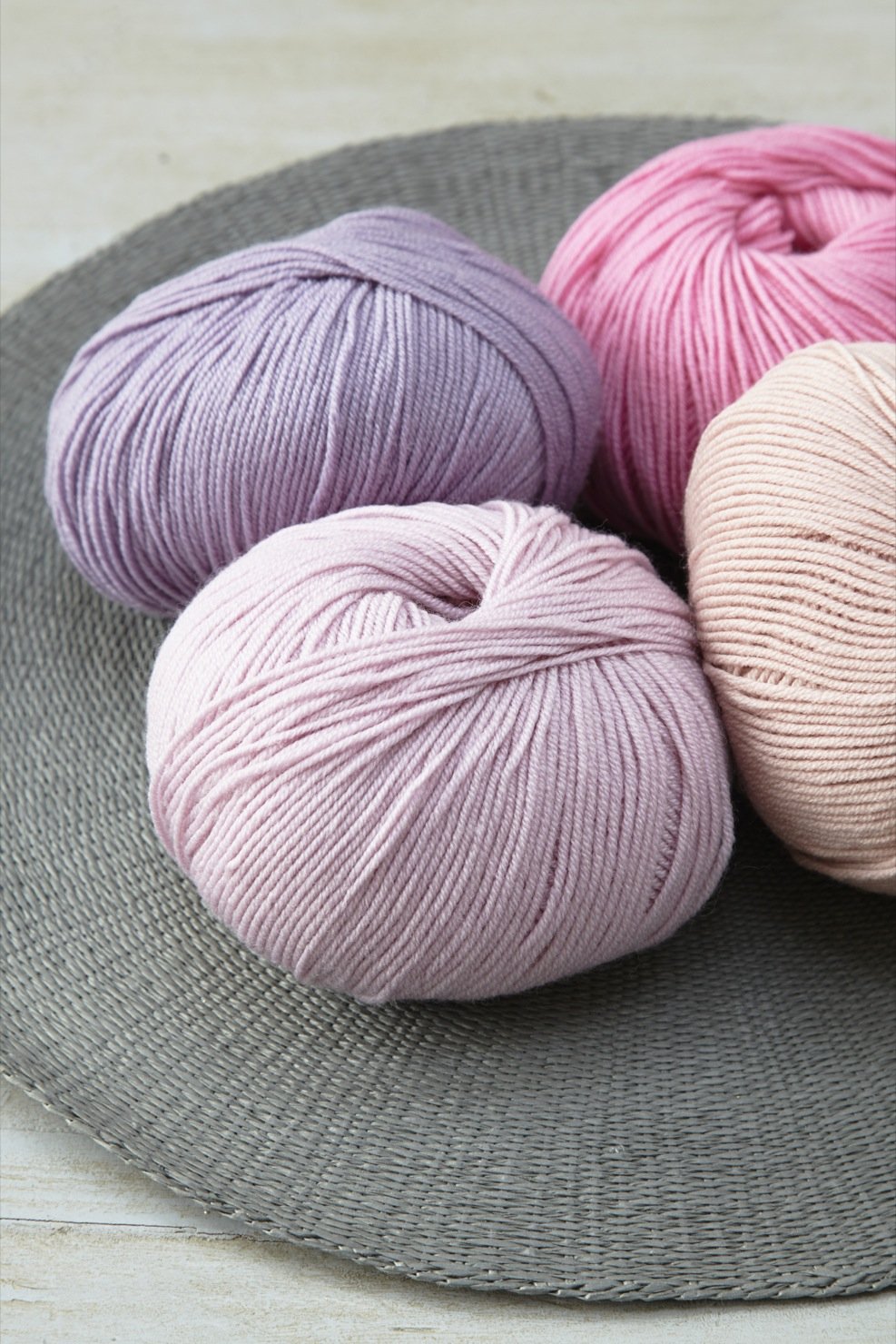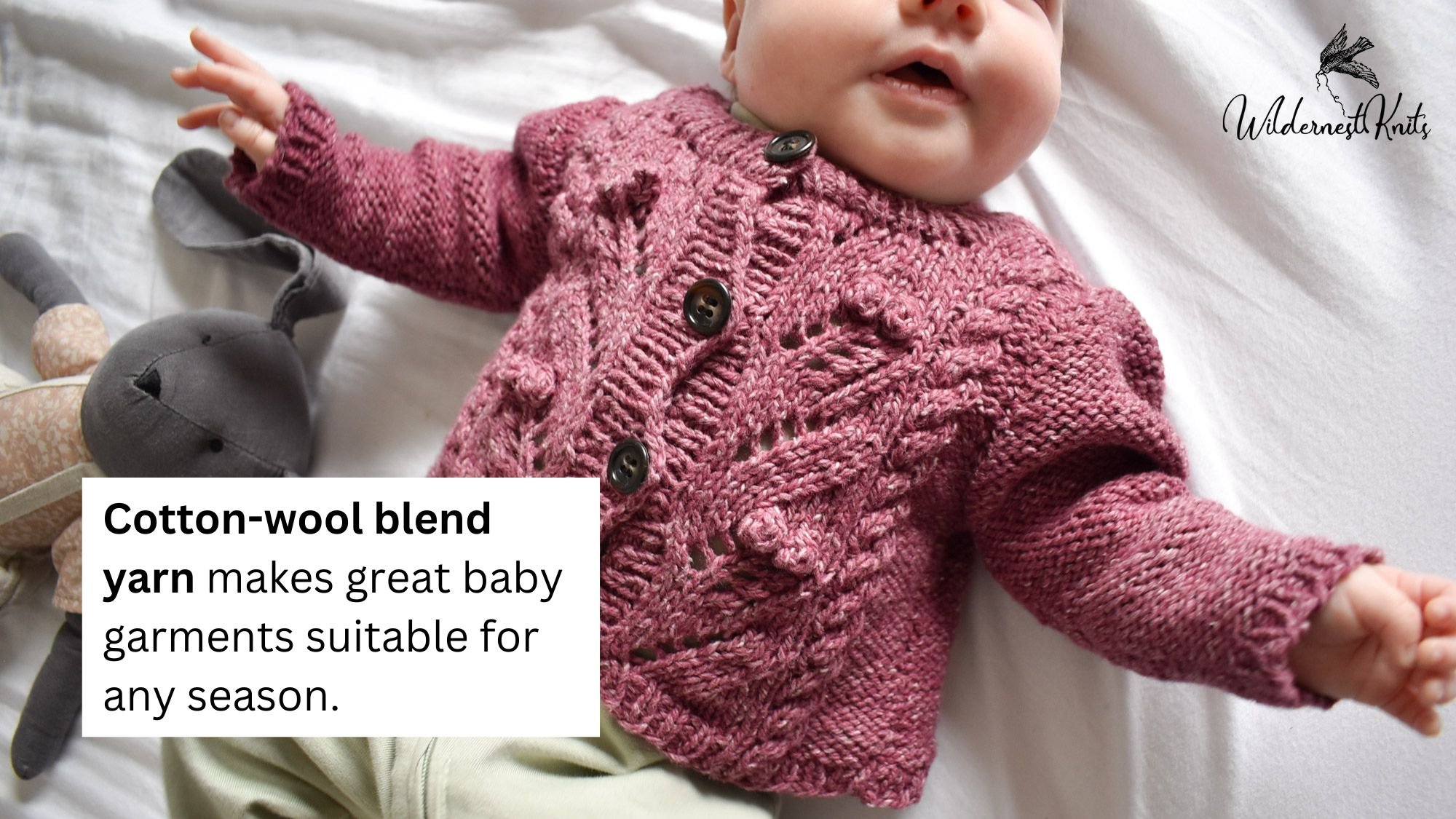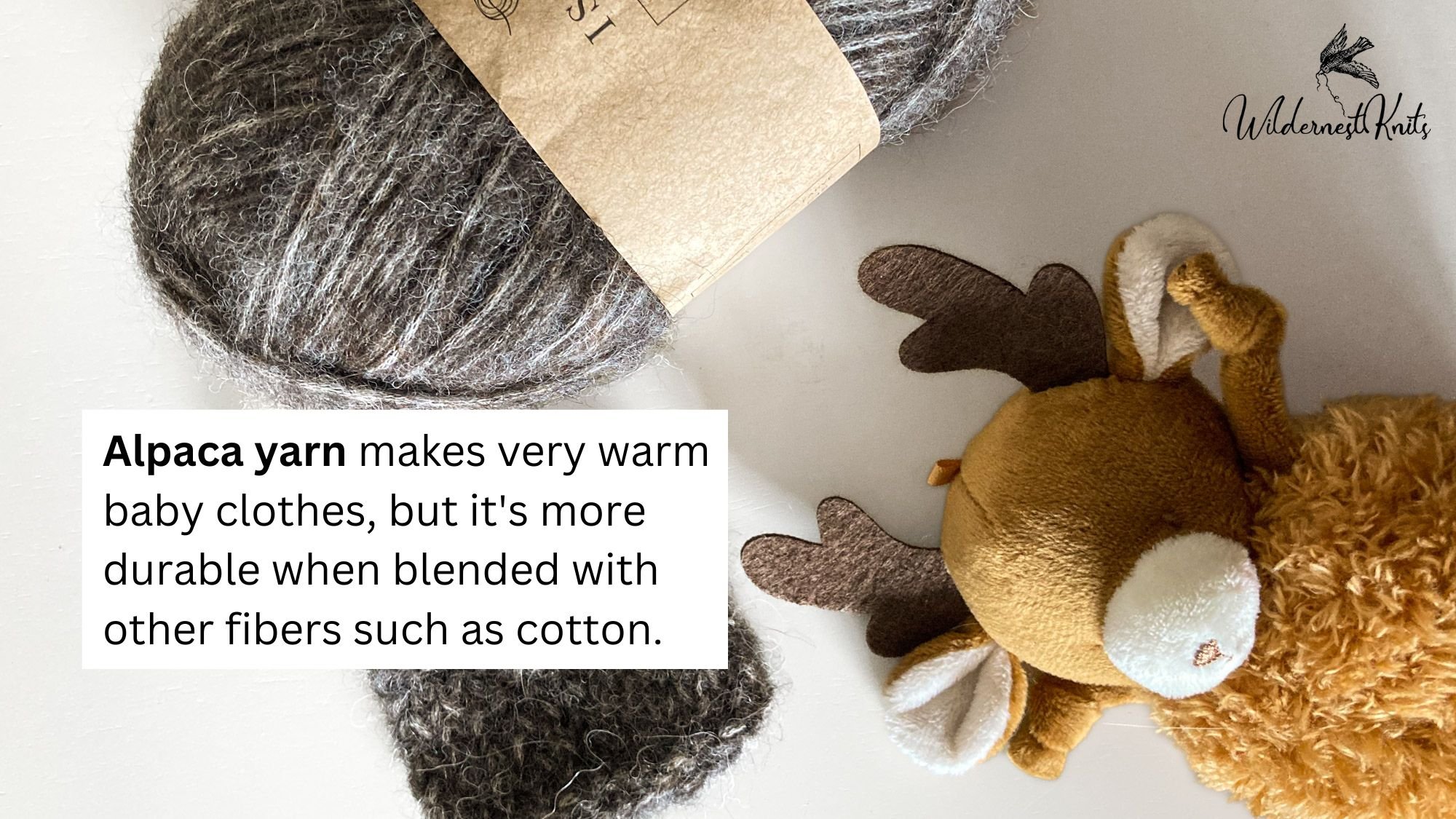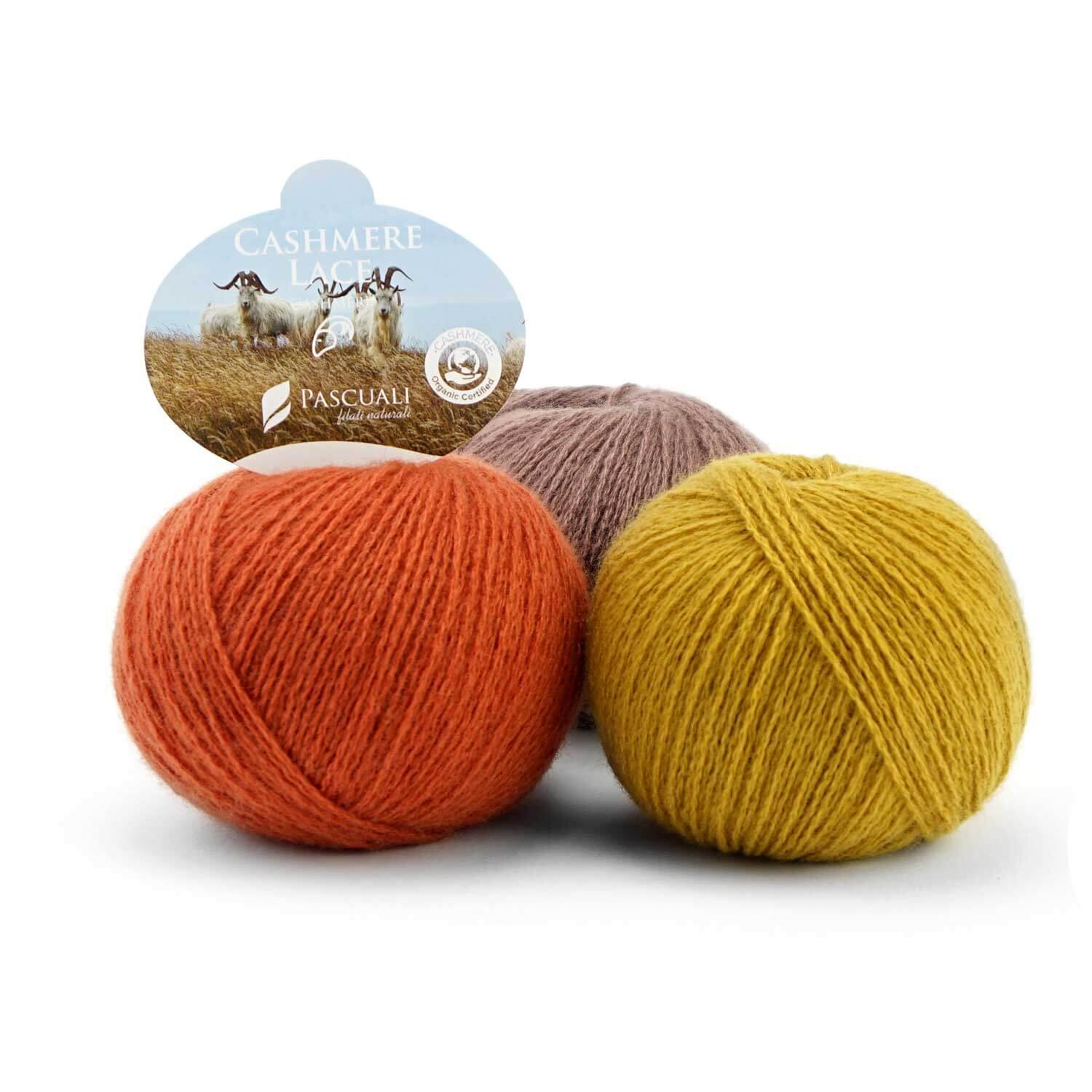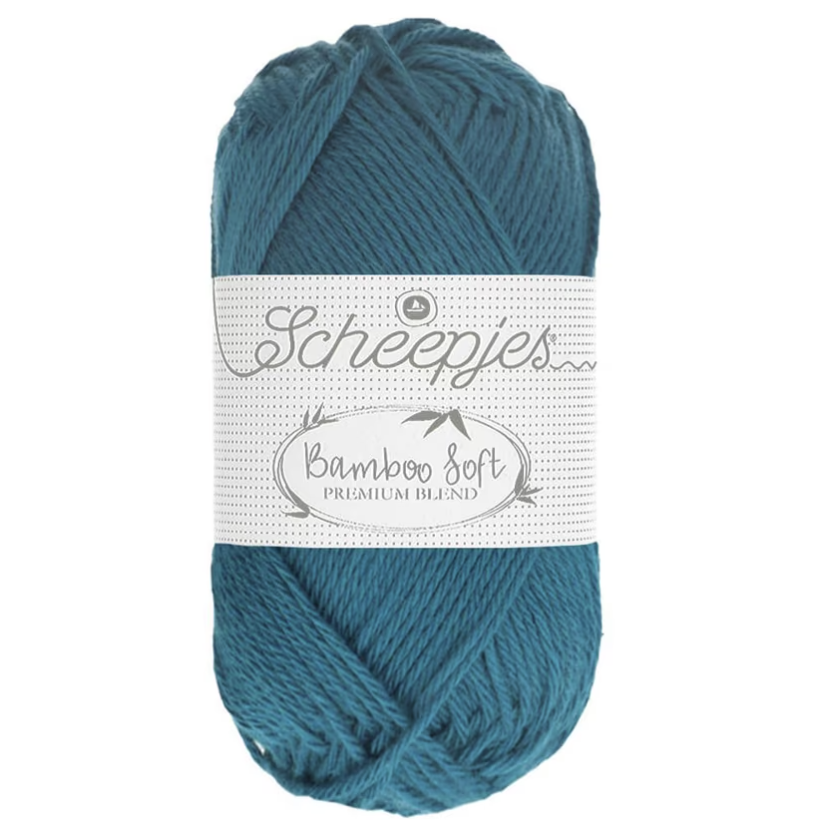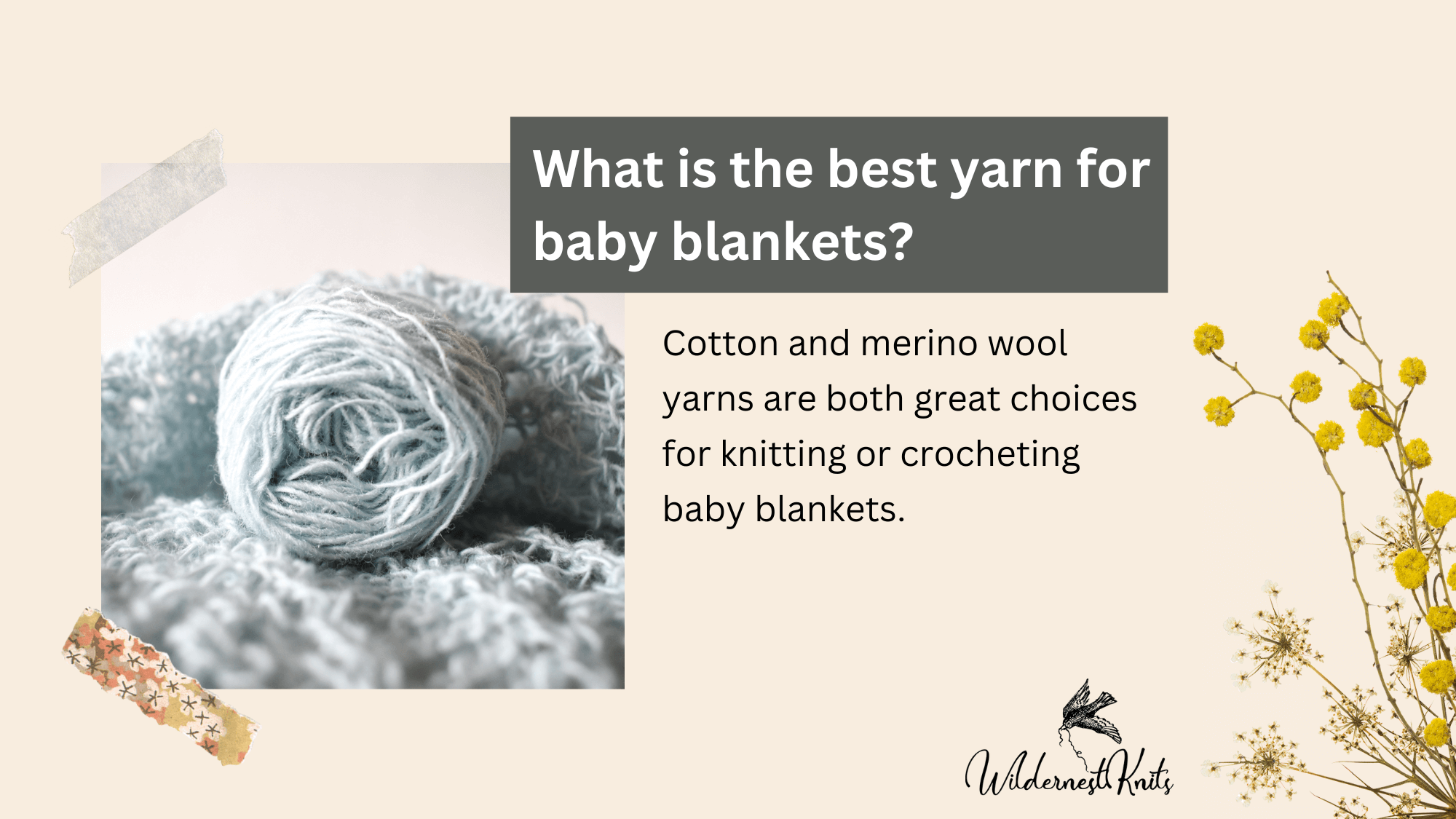How to Choose the Best Yarn for Babies
This website contains affiliate links which may earn a small commission for purchases made at no extra cost to you and help it keep running. Learn more.
Choosing the best yarn for baby knitting projects can be a daunting task, especially if you're new to knitting or if you're not familiar with the different types of yarn available. In this article, I'll discuss the different types of yarn and which type of knitting projects they are good for.
The basics of selecting yarn for baby projects
When selecting the best yarn for baby clothes, you want to make sure that the yarn is:
soft,
durable,
appropriate for the season,
and safe for your little one.
So, what kind of yarn is best for babies? There are many different kinds of yarn that are safe for babies and toddlers such as merino or cotton wool. Here’s a list of the top types of yarn recommended for baby knitting:
I will go into more detail about each of these yarns below.
Using wool for baby knitting
Which wool yarn is the best for babies?
Merino wool yarn is often considered to be the best choice for baby knitting as it’s one of the softest and most popular yarns available. It's perfect for baby knitting projects because it's not only soft, but also breathable and lightweight. Merino wool is naturally hypoallergenic, so it's a great option for babies with sensitive skin.
Merino yarn is quite durable, which means it can withstand frequent washing and wear. However, this largely depends on the quality of the yarn manufacturer. Lower quality merino yarns will pill and potentially even thin to the point of developing holes in the garment. This may not be an issue with your baby garments, considering the short period of time they’re likely going to be worn before your infant outgrows them.
If you’re planning on creating a long-lasting piece, make sure to choose a yarn brand with a good reputation or look for other types of wool yarns that don’t pill as much. You might have to compromise on the softness though.
Top merino yarns for baby knitting
Find several examples of 100% merino wool yarns you could use for baby knitting below, sorted by weight/thickness:
TOP PICK: Mountain Meadow Wool Cody, sport weight, 100% Mountain Merino Wool, artisan dyed. This yarn is soft and springy while retaining its beautiful natural properties, and its created by a family-operated mill along the western plains of Wyoming.
Cascade Yarns 220 Superwash Merino - can be machine-washed.
Tahki Yarns Superwash Merino Worsted Twist - can be machine-washed.
Here are also a few examples of yarns that blend merino with other fibers to increase it’s durability and/or softness:
Rowan Baby Cashsoft Merino Fingering blends merino wool with acrylic and cashmere to increase durability and softness.
Juniper Moon Farm Saxony Aran Cashmere Merino Knitting Yarn - extremely soft with cashmere.
Ideal baby projects for merino wool yarn
Merino wool yarn is great for a variety of baby knitting projects for the winter season that need to be warm, including
blankets,
sweaters and cardigans,
dresses,
hats,
cowls and scarfs,
mittens,
socks, and
booties.
Since it’s so soft, you can use merino wool for garments that directly touch the baby’s sensitive skin such as hats or socks. Merino wool is lightweight and breathable, which makes it perfect for items that your baby will wear year-round. Wool yarns are generally more suitable for the winter months though.
Yarn pictured above: Peerie by Brooklyn Tweed, American Merino wool.
What other types of wool yarn can you use for babies?
While merino yarn is usually considered to be the best type of wool yarn to use for baby knitting, there are other types of wool that are suitable, warmer, and may hold their shape better overtime. You still want your garment to be soft enough for a baby’s sensitive skin though and there are a number of other factors to think about.
Consider these factors when choosing wool yarn:
How the yarn is spun. Refer to the information for the specific yarn you’re considering because there’s lot more to the milling process than you may think. Both woolen and worsted spun yarns can be soft depending on a number of factors.
The type of sheep breed or age. Merino is a type of sheep breed. Other breeds you may encounter that are softer than others include Cormo, Corriedale or Debouillet. Lambswool on the other hand refers to the age of the sheep - this type of wool was created with the lamb’s first shearing. These yarns are usually very soft as well, but this again varies based on the sheep breed. You can find a Cormo-baby alpaca blend yarn on my website I designed specifically for baby knitting.
The yarn thickness or weight. Generally speaking, the thinner the yarn, the less soft it will be knitted up. This however depends on other factors like the ones listed above.
The yarn brand reputation and practices. It’s difficult (if not impossible!) to tell which brand is better than the other, especially when there are so many. You can try to look up the brand that caught your eye online and see what they say about their practices. Another option is to ask in your local yarn store.
You can also look up specific yarns on Ravelry, which gives you an option to see all projects that were completed with them. You can even filter down the projects based on what you’re looking for. Knitting designers also always recommend specific yarns for their patterns, which might be a good sign of quality.
Superwash vs. hand wash yarn. You should also consider whether you’re willing to hand wash baby items. If you’re planning on using a washing machine and you want to use wool, make sure to look for a superwash yarn. You can find a few superwash wool yarn examples below:
The price of the yarn. High price might not always be a sign of high quality. Sometimes you can encounter hand-dyed yarns that are very pricey, but although beautiful visually, the yarn itself might not be the best quality. Some yarns were chemically treated to the point of losing most of their natural abilities.
Pay attention to how it’s spun and whether it shows “signs of life.” This can include natural coloring or bits and pieces of grass, or how the yarn feels in your hands. If this is confusing to you, don’t worry, you will develop a trained eye overtime and you’ll be able to spot those yarns from far away when you’re walking around in Rhinebeck!
Using cotton yarn for baby garments
Cotton yarn is another great option for baby knitting projects. It's soft, breathable, and easy to care for. It can be washed in the washing machine - you should be able to locate this information on the label. Cotton yarn is also hypoallergenic, so it's a good choice for babies with sensitive skin. It also doesn’t pill, has a good stitch definition, and is usually more affordable compared to other types of natural yarn.
However, if cotton sweaters get wet, they get heavy, don’t retain warmth like wool does, and they won’t dry as easily either. This can be dangerous in cold temperatures. Make sure to use other fibers for winter hand knitted garments for your little one.
Recommended cotton yarns
Here are a few examples of great cotton yarns to use for knitting baby projects:
For extra warmth while still enjoying the benefits of cotton, look for yarns that are blended with wool, cashmere or alpaca:
Rowan Cotton Wool - DK weight, lightweight
Plymouth Yarn Pima Rino - worsted, machine-washable
Types of cotton yarn projects for babies
Cotton yarn is perfect for baby items that are used frequently and don’t need to be especially warm such as:
washcloths and bibs,
summer clothes like dresses, rompers and tops,
lighter sweaters and cardigans,
toys,
booties,
baby blankets.
However, use wool or alpaca for warmer blankets instead.
It’s good to keep in mind that cotton garments may stretch out overtime by wearing or washing, as they get very heavy when wet. The complete opposite may also happen: cotton garments may shrink if you use a washer and dryer. Hand washing your precious knitted baby garments and laying them flat to dry can help prevent that.
You could also opt for a cotton yarn blended with other fibers such as wool, which will add more warmth and memory to the garment.
I designed the Sofie’s Cardigan knitting pattern with Dapple yarn by Brooklyn Tweed, a blend of cotton and merino wool. This pattern is currently in testing and will be published soon.
Knitting baby clothes with alpaca yarn
Alpaca yarn is a very soft, warm, and lightweight yarn that is suitable for baby knitting projects. It’s hypoallergenic and about three times warmer than wool, which makes it perfect for winter items. It can however cost you a bit more.
Alpaca fiber has a different structure from wool with less scales that make it more slippery. This means that alpaca garments are likely to pill more and may not hold their shape that well over time. It’s a good idea to look for alpaca yarns blended with other, more durable fibers like wool.
Yarn pictured above is Isager Eco Soft: a blend of alpaca and cotton fiber.
Recommended alpaca yarns
Here are some examples of quality alpaca yarns to knit baby garments with:
Alpaca yarns blended with other types of fiber:
Rowan Fine Lace - blended with merino wool
Pascuali Balayage Fingering Alpaca Wool Knitting Yarn - blended with merino wool
Plymouth Yarn Moon Shadow - worsted weight, blend with pima cotton adds great stitch definition.
Which baby projects can you make with alpaca yarn?
Since it’s so exceptionally warm, alpaca yarn is great for
baby blankets,
sweaters and cardigans,
dresses,
cowls and scarfs,
hats, and
booties.
Since it’s considered to be more of a luxurious material, it's also a good choice for special occasion items and heirloom pieces that can be passed down from generation to generation.
Knitting with cashmere yarn for babies
Cashmere yarn is a luxurious and soft yarn that is great for baby knitting projects, but it can be expensive and needs to be treated more gently. This means it’s not a good choice for everyday items that go through a lot of wear and tear. It's made from the undercoat of cashmere goats, which makes it incredibly soft and warm. However, it has a weaker structure than wool and a tendency to pill.
Cashmere yarn doesn’t contain lanolin and is hypoallergenic, so it's a great option for babies with sensitive skin.
Recommended cashmere yarns for baby garments
The list below includes both 100% cashmere yarns as well as blends with other fibers such as merino or cotton:
Pascuali Cashmere Lace Knitting Yarn - 100% cashmere
Rowan Pure Cashmere - DK weight, 100% cashmere
Valley Yarns Brodie - worsted, blended with 5% merino wool
Baby projects to make with cashmere yarn
Cashmere yarn is perfect for special occasion garments and items that don’t get washed frequently such as:
baby mittens,
hats,
cowls and scarfs,
sweaters and dresses.
If you want to use cashmere yarn for more frequently worn baby items, look for a blend with wool or other fibers that add more strength and durability to the yarn.
Follow me for the newest updates:
Is bamboo yarn suitable for babies?
Bamboo yarn is a natural, eco-friendly yarn that is a good choice for baby knitting projects that can be used in warmer weather. It's soft, breathable, and has a natural sheen that gives it a luxurious feel. It creates a nice drapery, but due to its soft and slippery character it doesn’t hold the garment’s shape that well. Bamboo yarn is naturally hypoallergenic, making it suitable for babies with sensitive skin.
Recommended bamboo yarns
Below are a few recommended bamboo yarns that you can use for baby knitting projects. Some of these are blends with other fibers.
Scheepjes Bamboo Soft - fingering weight, blend with cotton
Sirdar Snuggly Baby Bamboo DK - blend with merino wool
What can you make with bamboo yarn?
Bamboo yarn is perfect for summer season projects for babies such as
lightweight tops and sweaters,
rompers,
dresses,
hats, and
toys.
Bamboo yarn can usually be machine washed, but make sure to check the label to read instructions first. Since this type of yarn is quite slippery and doesn’t hold shape that well, it might be a good idea to look for a blend with other fibers.
Knitting with acrylic yarn: Is it safe for babies?
Acrylic yarn is a synthetic yarn that is very popular for baby knitting projects. It's affordable, easy to care for, and comes in a wide range of colors and textures. You can find it practically in any craft store nearby. It’s also said to be hypoallergenic.
I personally prefer to knit with other types of yarn that are natural and decomposable. Acrylic yarn is not environmentally friendly and can even be carcinogenic. Every time you wash a garment made with acrylic yarn, microplastics are released into the water. On top of that, the production of acrylic yarn requires a massive amount of fossil fuels and releases toxic fumes into the atmosphere.
What can you knit with acrylic yarn?
Acrylic yarn can be used for a variety of baby knitting projects, including
blankets,
tops and sweaters,
dresses,
cowls and scarfs,
hats, and
booties.
Since it's easy to care for and can withstand frequent washing and wear, it's a suitable option for items that your baby will use often.
What yarn should not be used for babies?
For baby knitting and crocheting, avoid using yarn that feels scratchy to your skin. For example, place it on your wrist or neck where the skin is very sensitive and see how it feels. Generally speaking it’s best to avoid natural fiber with a high micron count which is the measurement for measuring the diameter of a single fiber. While merino wool has a low micron count, a lot of the sturdy coarse wool breeds like Gotland will have a high micron count. As mentioned above, I would also recommend to avoid synthetic fibers as they are not environmentally friendly and potentially carcinogenic which is probably the last thing you want for your baby.
Yarn blends are often a great choice as they combine characteristics of multiple fibers and can suppress some of their disadvantages. For example, a merino-cotton blend will make your baby’s garment soft, breathable and durable at the same time. A cashmere-merino blend will combine the incredible softness of cashmere and the strength of merino wool.
In conclusion, when selecting yarn for baby knitting projects, you want to make sure that the yarn is soft, durable and suitable for the season and weather.
FAQs
What is the best yarn for baby toys?
The best yarn to use for baby toys is cotton yarn: it’s known for its smooth texture and stitch definition, and it can be machine-washed which is great considering the heavy use the baby toy is likely to go through. Acrylic yarns are also durable and soft, and they're often more affordable than cotton yarns, but they’re not as environmentally friendly. To sum up, if you're looking for yarn that's soft, durable, and easy to care for, cotton and acrylic yarns are a great option for knitting or crocheting baby toys.
What is the best yarn for a baby blanket?
Cotton and merino wool yarns are both great choices for knitting or crocheting baby blankets. They're soft and durable, and they won't irritate a baby's delicate skin. You could also use acrylic yarns if you’re looking for a more affordable option, but they’re not as environmentally friendly.
Cotton yarns are also a bit more breathable than acrylic yarns, so they may be a better choice if you want to make a light and airy blanket, perfect for the summer. If you’re looking to make a winter baby blanket, soft wool like merino or alpaca fiber is the superior choice. To create a heritage piece for generations to come, you could also opt to create a baby blanket with cashmere yarn but you’ll have to stretch your budget a bit as cashmere yarn can cost quite a bit more.
Choosing the best yarn for a baby blanket really depends on your budget and preferences.
What is the best yarn for a baby sweater?
The answer really depends on the climate or the season when the baby will be wearing the sweater. For winter months and colder climates, merino and other types of soft wool yarns are the best options for a baby sweater.
Alpaca and cashmere yarns are also great choices, but they can be more costly. Alpaca yarns also have a tendency to pill more.
For warmer climates and weather, the best recommended yarn for a baby sweater is cotton. It’s soft and durable, and machine-washable, which is a plus when you're dealing with baby clothes.
What is the best yarn for baby hats?
The best yarn to use for baby hats should be soft and durable, and help keep the baby warm. Examples of great yarns to use for baby hats include merino wool, cashmere and alpaca fibers. Cotton yarn is better for warmer climates and weather.

